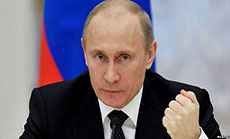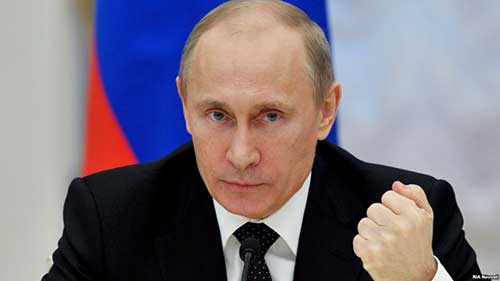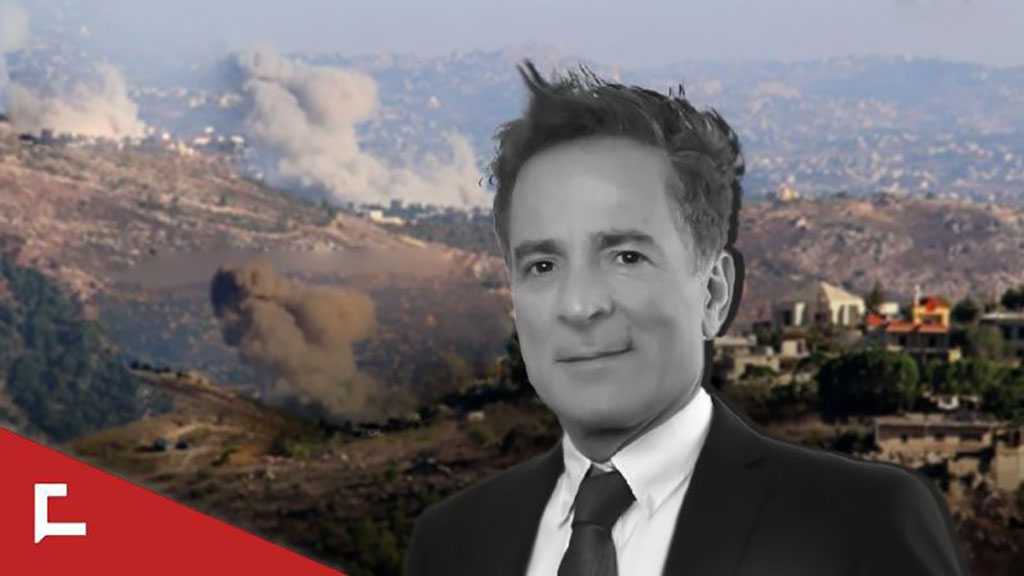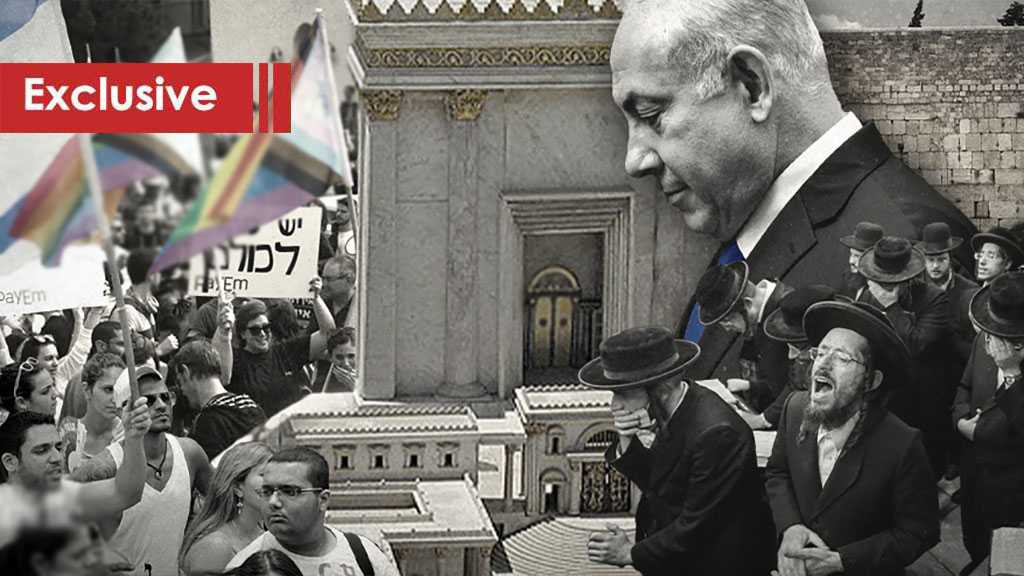The West and Russian War’s Mysterious Methods

Abed al-Hussein Shbeeb
The Russian methods in managing crises that are either related to it directly or that are related to foreign interests are a point of interest to experts and politicians in the West. They are concerned in understanding how this country behaves and manages its matters currently as it was once a great empire and competed with the American empire and Europe for tens of years.

The Russian president, Vladimir Putin, is of great interest to these officials as he is the real decision-maker or at times even the only one. He is credited for taking back Russia out of the hands of Boris Yeltsin. He is also hailed for saving Moscow from the downward and humiliating track, which Yeltsin caused in front of the West and in particular the United States.
In only a few years, Putin was able to bring Russia back on the track of the influencing countries in international politics and counteracting several American projects. He also gradually went up the ladder reaching a point where Moscow became able to oppose Washington.
Currently, Russia is at war with the West concerning Ukraine after Putin was able to divide that country using his cleverness. This comes as the annexed Ukrainian part falls under his direct administration. This happened after the success of the Crimean disputed referendum. Even though the US has been leading a sanctions campaign against Russia over Ukraine, Putin acts as if nothing has happened. Recently, he departed the G20 summit in Brisbane, east Australia, before the release of the official communique, deliberately citing his need to catch up on sleep. This showed his negligence to the threats at a time the Western sanctions targeted Moscow.
In a simple calculated process, the Russian president targeted the accompanying journalists by saying, "To get to Vladivostoc, we need nine hours by plane and then another nine hours to get to Moscow. Later we need to get back home to get at least four or five hours of sleep. "
However, upon his arrival at the airport runway, Putin who was smiling and didn't look tired at all, shook hands with two of the escorts, who were on motorcycles. He also stood next to some of the security members to take pictures with them. After that, he got on the plane.
In this manner, "the Russian bear" wanted to mock his opponents, who are bringing back the civil war to the international arena. Also, at the end of the Brisbane summit, Russia's opponents accused it of being a "threat to the world" and of its desire to bring back the long-lost glorious days of Tsarist Russia and the Soviet Union.
Due to this "threat"- that the West genuinely believes in, especially that it has been facing it at many levels, and most violently in Syria; Reuters agency has dedicated an analytical report about the subject.
Reuters correspondent in Washington, Peter Apps. Peter talks about the Russian ways in fighting the West in order to better understand the mysterious Russian war methods. The writer of the report also presented some concerning facts. As the Russians crossed the borders to fight along what they called "the rebels" in East of Ukraine during this year, Moscow said that the soldiers behaved independently, without receiving any orders.
When Estonia was a "victim" of an electronic attack in 2007, and Moscow was accused of standing behind it, the Kremlin answered by saying that it couldn't always control the Russian perpetrators of such attacks, who act from a patriotic approach.
After soldiers with no indications of their identities took control of the Crimean peninsula last march, the western military officials came up with a name for them. These men with no costume or indicators or normal clothing were called "the small green men" by the western officials.
The Reuters reporter pointed out that "the western planners who built their defences to resist a large-scale invasion, nuclear missiles, or terrorism are still trying to reach a way to confront that danger, which will destroy and create a state of instability, under the mask of denial.
So, according to "Peter Apps", the NATO is studying ways of confronting the "mysterious war" methods in case Putin tried to use similar methods in the Baltic States: Lithuania, Latvia, and Estonia.
But what can the West do in fighting an effective Russian strategy? Is it enough for the NATO to spread some of its tanks and planes in the region to show its determination to defend all its members by force? Or would it be enough to strengthen the presence of police there, such as the ones from the North European countries in order to track down any Russian attempt for invasion?
The Reuters reporter in Washington said that military experts stated that, "the non-traditional Russian strategy against its western rivals, especially in Ukraine which is not a NATO member, has proved to be clearly effective." Recently, it has also been associated with a powerful international parade, for the first time since the cold war.
Russian warships have sought to discover the limits of the Australian territorial waters before the recent G20 summit. Furthermore, Moscow said that its nuclear artillery patrols that are flying over West Europe will reach the Gulf of Mexico. Simply, this means it will reach the US boundaries.
According to western analysts, interviewed by Reuters, the main Russian purpose is clear: Moscow is working on re-establishing its authority on the near countries. Also, it seeks to remind the west of the grave consequences that awaits it if it uses its military power to confront Russia.
Nikolas Gvosdev, professor of national security at the US naval war college in Newport, Rhode Island, considered that, "Putin is measuring the readiness of the west to continue their pressure concerning Ukraine."
Most of the officials and experts usually reach a conclusion that the west and the government in Kiev will eventually be forced to accept a greater part of the Federal government, i.e. the Russian influence in East Ukraine.
"Will Putin interpret that as an indication of weakness and thus, a green light to use similar methods against NATO members, such as the Baltic countries?" Peter Apps asked this question in his report. He asked it in order to study the western strategy that will be used against the Russian one. He also referred to what Elbridge Colby, the Former Pentagon Official and a current Fellow at the Center for a New American Security. Colby stated that, "So far, the West has not formed a convenient strategy to deal with the Russian challenges."
Meanwhile, the biggest Western response was resembled by imposing financial sanctions on Russian companies and individuals.
Are we moving towards war? There was a previous statement this year by US Air Force General, Philip Breedlove to the "Dee Velt" newspaper. He said in a crucial tone, "Any secret Russian attempt to invade will be met with a military response under the fifth item from the alliance treaty."
"The NATO will consider any attack on any country member as an attack on the whole alliance."
Breedlove's statement can be interpreted in various ways. It could be real, but it could also be only a display for the sake of warning only. Reuters ended its report with a former official, who spoke in condition of anonymity: "You should remember that there is no simple choice of a traditional war with Russia. It will either be non-traditional like the current one or could even be worse than that."
We will not go back to what Russia has done in the past century and a half in confronting the US and its western allies' challenges and threats. The least it did was returning the international balance and reducing the effectiveness of the unipolar system. The scene would be even more different with so many palyers aspiring to play effective roles in regional and international affairs like China and Iran, who also have relations and coalitions with Russia.




